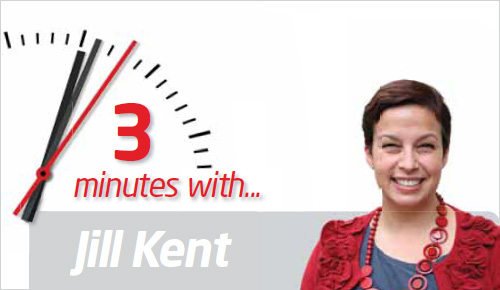Jill Kent, chair of the CSP’s North East regional network, explains how she got involved in Health Education North East through its allied health profession sub-group

Q. Why did you get involved in Health Education North East (HENE)?
Local Education and Training Boards are part of Health Education England and exist in each region. They plan and commission courses to educate our health workforce now and in the future.
I felt this was a great opportunity to become involved in a group which could inform and influence decision-makers at HENE to improve physiotherapy and rehabilitation services for patients and to secure the future workforce through work through protection of student commissioned numbers. It was a chance to turn procrastination into something useful!
On a personal level, it was an opportunity to develop my knowledge and skills.
Working full time in education I have always been mindful of not becoming detached from frontline clinical practice.
As educators we have a responsibility to ensure we fully understand what graduates need to know and what they should be able to do to contribute to a productive workforce that is fit for practice and purpose.
On a professional level, becoming part of the sub-group was an opportunity to stay connected with practice across the region.
Q. What difference do you think HENE has made?
It is slow and steady progress.
We have been able to raise the volume of the physiotherapy and AHP voice by responding to many HENE consultations and requests for information.
Historically, we have always struggled to have our voice heard against the volume of the nursing profession – I see it as not being in competition but rather that we need to ensure that the fundamental differences between the professions and the potential contribution of physiotherapists in many areas of service across health and social care is recognised and understood. We have had the chance to get what we offer on the table.
Q. What lessons have you learned?
The biggest lesson is that there is never time to prepare – we need to be ready with data and outcomes to present to the decision makers with the purse-strings.
We must improve at evaluating out interventions. I feel we are good at doing this on an individual patient level but find it more challenging at service level and something we need to get better at.
I’ve also learned that it is important to have a clear plan - recent work of the sub group has focused on the bands 1 to 4 workforce and CPD funding - there is significant variation across the region in terms of banding and in relation to CPD funding and requirements.
Having the sub-group has allowed us to present information reflecting the position of physiotherapists and other AHPs working across a range of settings. Working in alliance with other AHPs really does strengthen our position.
Q. What advice would you give other members and regional networks keen to follow in your footsteps?
Explore all opportunities and avenues to enable you to get involved and don’t become tunnel visioned.
Physiotherapists are always hugely committed to their patients which is obviously just how it should be.
We need to see how we can be smarter at ensuring others understand, value and recognise that commitment and the untapped potential that physiotherapists offer. Make use of CSP resources and your regional network.
Q. Can the CSP and regional networks do more to help members with this?
The biggest challenge, which is not unique to physiotherapy, is time and I think every member of the subgroup would give that answer!
This is obviously a difficult one for everyone and the CSP helps us with the development of guidance on a range of issues and through using technology to share information-delivery.
In my experience, regional network meetings are an ideal opportunity for members to share information that can be feedback directly to HENE via the sub-group.
Q With this, your day job and chairing the regional network you must be really busy. How do you relax?
With two very sporty young girls I unwind cheering them on along the sidelines of the netball court and hockey pitch!
Author
Frontline Staff
Number of subscribers: 0
